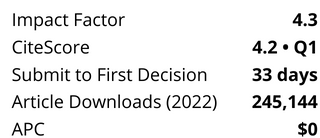Abstract
Stormwater runoff from urban catchments is affected by the changing climate and rapid urban development. Intensity of rainstorms is expected to increase in Northern Europe, and sealing off surfaces reduces natural stormwater management. Both trends increase stormwater peak runoff volume that urban stormwater systems (UDS) have to tackle. Pipeline systems have typically limited capacity, therefore measures must be foreseen to reduce runoff from new developed areas to existing UDS in order to avoid surcharge. There are several solutions available to tackle this challenge, e.g. low impact development (LID), best management practices (BMP) or stormwater real time control measures (RTC). In our study, a new concept of a smart in-line storage system is developed and evaluated on the background of traditional in-line and off-line detention solutions. The system is operated by real time controlled actuators with an ability to predict rainfall dynamics. This solution does not need an advanced and expensive centralised control system; it is easy to implement and install. The concept has been successfully tested in a 12.5 ha urban development area in Tallinn, the Estonian capital. Our analysis results show a significant potential and economic feasibility in the reduction of peak flow from dense urban areas with limited free construction space.




%20cropped.png?versionId=5947)